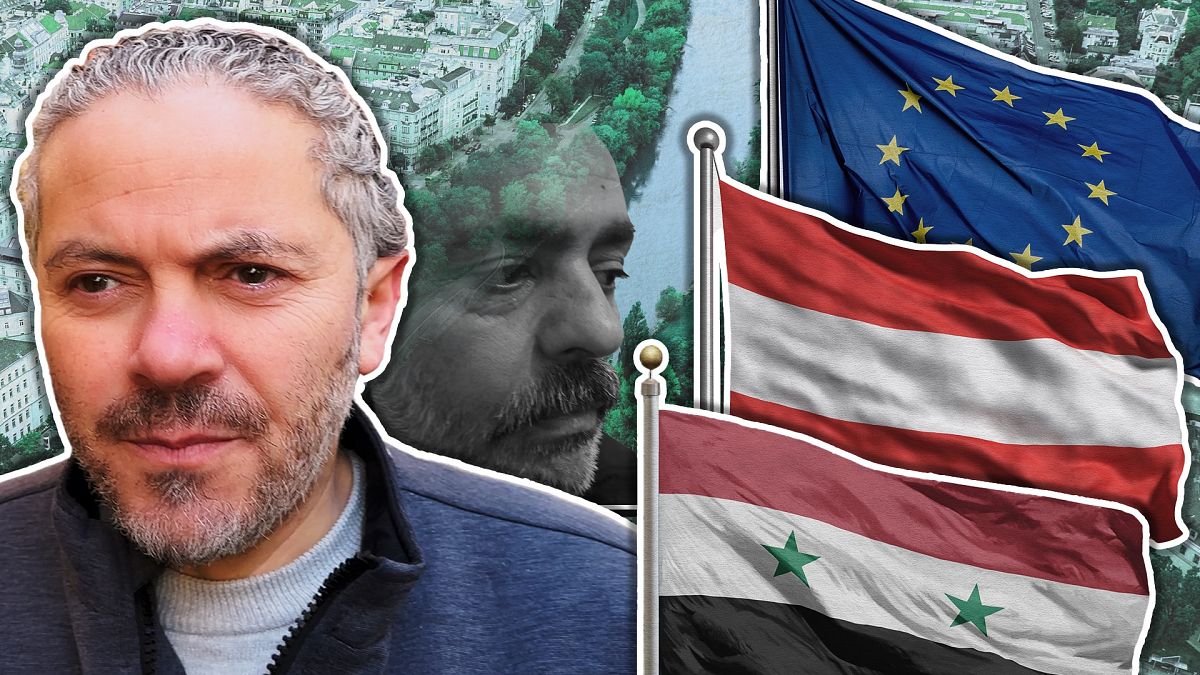We mustn’t repeat the tragedy of asbestos when it comes to pesticides

The opinions expressed in this article are those of the author and do not represent in any way the editorial position of Euronews.
We need to ban all synthetic pesticides and implement agroecological practices that boost health and nature as quickly as possible. What is the EU waiting for, Agnieszka Basińska, Francis Balay and Xavier Brenez write.
In November 2023, despite strong opposition, the European Union extended authorization for the use of the toxic herbicide glyphosate by 10 years — and now it has abandoned its green pact pledge to reduce the use of pesticides by 50%.
The current situation with pesticides brings to mind the asbestos tragedy — there are many similarities, including a failure of justice. In Europe, it was only in Italy that a criminal trial took place in 2012.
And that is why we, as managers of European mutual health organizations and public health stakeholders, are calling for determined action to defend the right to health and to preserve social protection systems.
In the 20th century, we acted to stop the poisoning of workers exposed to asbestos. We defended the victims so that they could get the compensation they needed and deserved.
But this should all have been avoided: while the toxicity of asbestos was identified in 1906, it was not until 2005 that it was banned in Europe. There was in effect a whole century of political denials, despite ever-increasing numbers of scientific publications and hundreds of thousands of deaths.
Tragically, these poisonings and deaths continue today, since asbestos is still widely present. The asbestos industry lobbied hard to make people believe that controlled use of this dangerous mineral was possible, which delayed its eventual ban and the adoption of efficient prevention rules.
It is estimated that between 4 and 7 million European workers are still exposed to asbestos on a daily basis.
Today, we’re launching an urgent appeal: let’s not make the same mistake with pesticides. Let’s not repeat the disastrous approach that’s still causing more than 90,000 deaths per year in Europe, as well as many cancers.
The asbestos tragedy and the current situation with pesticides have many of the same features, and it’s vital to understand them if we’re to avoid another disaster.
An initial fascination contributed to a collective blindness
Asbestos was presented as a magical mineral thanks to its many potential uses, from insulation to fire resistance.
The same thing happened with pesticides when they entered mass production in 1945: they were apparently miraculous new toys with spectacular effects, giving us complete control over nature.
In 1943, industry insiders discovered that 80% of mice exposed to asbestos developed lung cancer — but they kept the results of these studies secret.
Multinational agrochemical corporation Monsanto showed the same cynical dishonesty in the late 1990s when it chose to conceal an internal research report revealing the genotoxicity of herbicides containing glyphosate.
The apparent invisibility of work-related diseases is because work risks and their health consequences have become normalized.
Laws from the end of the 19th century on industrial accidents and occupational diseases mean these can be seen as “insurable risks” rather than dangers that must be eradicated. This situation is unacceptable.
Health warnings are ignored
Current political attitudes — which favour paying minimal compensation after the fact over making serious efforts at prevention before it — reflect the influence of lobbies at the highest levels.
How can we justify still using toxic pesticides in Europe when occupational diseases linked to pesticides – such as prostate and blood cancers, and Parkinson’s – are both acknowledged and compensated for by social security in France? It’s the same lack of consistency in public health as we saw in the 20th century with asbestos.
It’s impossible to ignore the parallels between the tragedy of asbestos and, today, of pesticides.
Scientific research has established that pesticides are responsible for a 70% collapse in the number of human spermatozoa and the disappearance of 80% of flying insect populations.
It’s not a question of human health on one side and healthy biodiversity on the other: in fact, our destinies are linked, and pesticides are disastrous for both.
In addition, a 2019 ruling of the Court of Justice of the European Union shows that the pesticides being sold today do not comply with the law since their toxicity has never been properly evaluated.
It’s so clear: we need to ban all synthetic pesticides and implement agroecological practices that boost health and nature as quickly as possible. What are the European Commission, the European Parliament and the member states waiting for?
We’re better off without them
A new agricultural paradigm — one without pesticides — will be healthier for ourselves, for our farmers and for our climate.
And we need to support our farmers, logistically and financially, as they set this new course.
Our social protection systems are not able to support the continued increase in diseases like cancers and neurological disorders stemming from hormonal and nervous disturbances.
Pesticides — made from petroleum and full of hidden poisons — are, in part, the cause.
For the sake of our future, we have to learn from the asbestos tragedy of the past.
Agnieszka Basińska is Director of the Association of Common Help “Flandria” in Poland; Francis Balay is President of Alternative Mutualiste in France; and Xavier Brenez is Director General of Mutualités Libres in Belgium. A total of 40 organisations from three European countries representing more than 30 million Europeans have co-signed this op-ed.
At Euronews, we believe all views matter. Contact us at view@euronews.com to send pitches or submissions and be part of the conversation.
Source: Euro News















